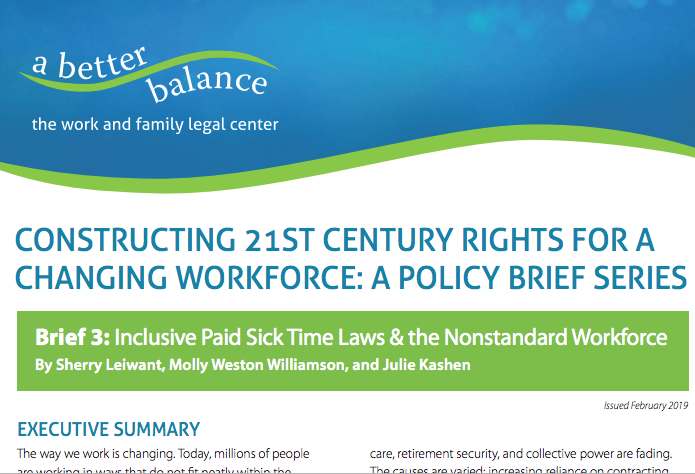Today, A Better Balance released the third policy brief in our series, Constructing 21st Century Rights For A Changing Workforce, a series of policy briefs analyzing key issues in covering non-standard and precarious workers under paid leave laws. The third brief looks at how paid sick time laws can effectively cover non-standard workers, including part-time workers, seasonal workers, temporary workers, and domestic workers, as well as questions and opportunities in covering the self-employed.
We are also re-issuing our two prior briefs, which addressed how paid family and medical leave laws can cover non-standard workers, including updated information for 2019 and highlighted key considerations for each issue. Our first brief considers how paid family and medical leave laws can cover self-employed workers like freelancers and independent contractors, while our second brief focuses on how paid family and medical leave laws can effectively cover non-standard employees, including part-time workers, seasonal workers, temporary workers, and domestic workers. All three briefs can be found here.
Millions of people are working in ways that do not fit neatly within the traditional employer/employee framework. Regardless of their job classification, more and more people are in insecure employment situations, constantly moving in and out of increasingly tenuous positions. Against this backdrop, innovative policies like paid family and medical leave and paid sick time laws offer exciting opportunities to develop workplace standards that truly work for a changing workforce. In charting this exciting path forward, some key questions remain. This series of policy briefs identifies and analyzes these issues in order to lay the groundwork for a more robust discussion and better-informed policymaking.





